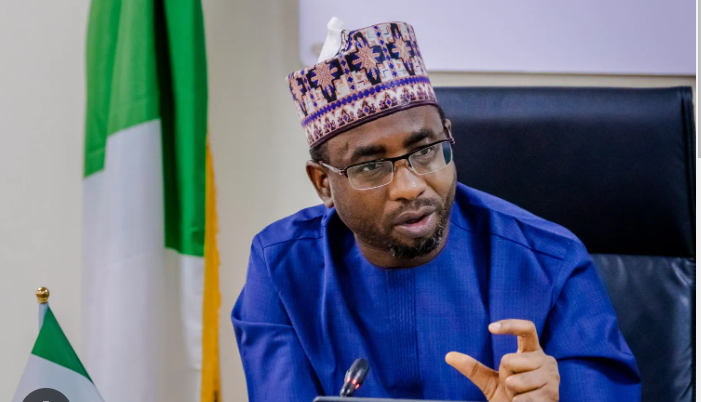At the recent e-Tech Africa Summit in Abuja, the Director General of the National Information Technology Development Agency (NITDA), Kashifu Inuwa, highlighted the transformative power of digital innovation in Africa.
He emphasized that technology advancements have led to increased efficiency in delivering cutting-edge solutions, goods, and services at a cost-effective price, ultimately contributing to Africa’s digital economy.
Inuwa also pointed out that digital innovation can enhance government openness, accountability, and efficiency, bringing it closer to the people.
Read also: Google commits to creating one million digital jobs in Nigeria
Digital Skills for African Growth
According to Inuwa, digital skills play a pivotal role in Africa’s future growth, as the continent is poised for massive economic acceleration. He noted that Africa’s current GDP is at 3.1 trillion USD, with digital innovations contributing an impressive 200 billion USD. As Africa’s population is expected to double by 2050, the continent is presented with endless opportunities for inclusive growth and prosperity by harnessing its natural resources and human potential. However, to fully utilize this potential, Africa must prioritize digital connectivity and skill development.
Bridging the Digital Talent Gap
Inuwa stressed the importance of developing digital talent in Africa’s innovation ecosystem. A lack of relevant skills could hinder opportunities for African countries, making it crucial to prioritize continuous programs for learning digital literacy and skills. By increasing human capacity and achieving digital inclusion, Africa can bridge the talent gap and ensure a bright future for its digital economy.
The NITDA Director General acknowledged that digital transformation heavily relies on Internet access and, thus, the need to increase broadband accessibility at a more affordable rate. Functional digital infrastructure is vital to fully benefit from the digital economy, requiring proper planning and incentives for young people engaged in digital innovation.
The Pitchfest competition held at the summit aims to provide talented youths with opportunities to showcase their innovative ideas and solutions for enhanced productivity across different sectors. The competition encourages the development of technologies that address local problems and socio-economic needs, fostering growth in Africa’s digital innovation and entrepreneurship ecosystem.
NITDA’s Commitment to Indigenous Digital Innovation
The NITDA has undertaken various initiatives to support and promote indigenous digital innovation in Nigeria. Through its Office for Nigerian Digital Innovation (ONDI) and the Centre for Artificial Intelligence and Robotics (NCAIR), NITDA seeks to facilitate the growth of Nigeria’s digital economy by creating Innovation-Driven Enterprises (IDEs) that promote job creation and market-creating innovations. These efforts align with NITDA’s Strategic Roadmap and Action Plan (SRAP 2021-2024), designed to create an enabling framework for the profitable adoption of home-grown innovation.
Call for Collaborative Efforts
Prince Ogbonna, the founder of Moolu Venture Capital, echoed Inuwa’s sentiments during the summit, emphasizing the need for more infrastructure and funding in the digital economy. He urged relevant organizations across the country to initiate similar hackathons and competitions to empower indigenous tech innovators to solve the nation’s challenges. NITDA assured its commitment to partnering with organizations like E-Tech Africa to support and promote talented indigenous innovators and boost Nigeria’s economic fortune in the digital age.
Digital innovation is transforming Africa’s economic landscape, opening doors to growth, prosperity, and enhanced quality of life. By prioritizing digital skills development, broadband access, and functional infrastructure, Africa can unlock its full digital potential. Collaboration among stakeholders, including government agencies, private sectors, and venture capitalists, will be crucial in nurturing indigenous talent and driving Africa’s digital economy forward. Through these collective efforts, Africa can pave the way to a brighter and more inclusive future for all its citizens.
